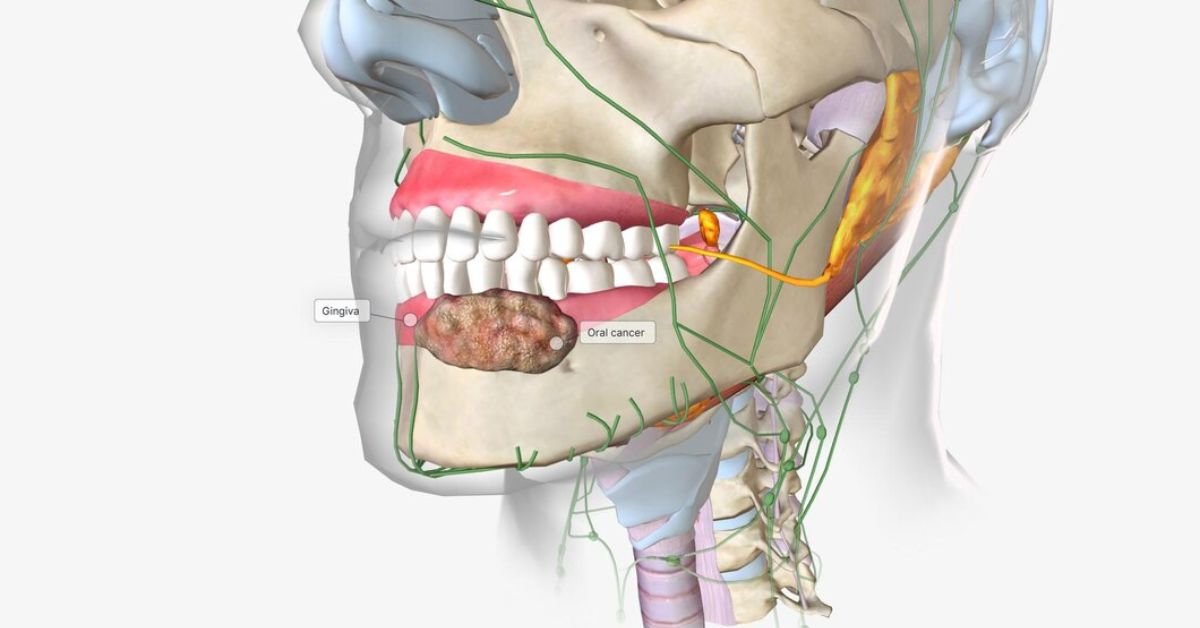Health
What is Bone Spicule: Are Bone Spicules Harmful?

Have you ever heard of bone spicule? They may sound like something out of a science fiction novel, but in reality, they are small bony projections that can cause big problems. In this blog post, we will delve into the world of bone spicules: what they are, how they form, and whether or not they pose a threat to your health. So buckle up and get ready to learn all about these tiny yet potentially harmful structures!
Causes of bone spicules
Bone spicule can develop for various reasons, with one common cause being trauma to the jawbone. When a tooth is extracted or lost, the body may react by forming bone spicules as part of the healing process. Additionally, poor dental hygiene and infections in the mouth can contribute to their formation.
In some cases, bone spicules can arise due to genetic factors or underlying medical conditions such as osteoporosis or Paget’s disease. These conditions affect bone density and structure, potentially leading to the development of spicules in the jaw.
Furthermore, orthodontic treatments like braces or retainers may also play a role in triggering bone spicule growth. The pressure exerted on the teeth and surrounding bones during these procedures can sometimes result in the formation of small bony protrusions.
Understanding the causes of bone spicules is crucial in determining appropriate treatment options and preventive measures to maintain oral health.
Symptoms and diagnosis
Experiencing bone spicules can lead to various symptoms that may vary depending on their location and severity. Some common signs include pain, swelling, and limited range of motion in the affected area. Individuals with bone spicules might also notice redness or warmth around the site of irritation.
Diagnosing bone spicules typically involves a physical examination by a healthcare professional who will assess the affected area for tenderness or abnormal bony growths. Imaging tests such as X-rays or MRIs may be ordered to get a clearer picture of the bones and identify any potential spicules present.
In some cases, a biopsy may be performed to confirm the presence of bone spicules and rule out other underlying conditions. It’s essential to seek medical attention promptly if you suspect you have bone spicules to receive an accurate diagnosis and appropriate treatment plan tailored to your specific needs.
Treatment options for bone spicules
When it comes to treating bone spicules, the approach can vary depending on the severity of the condition. In some cases, if the spicules are causing no symptoms or issues, a wait-and-see approach may be recommended by healthcare professionals. However, if treatment is necessary, options may include surgical removal of the spicule.
Surgery to remove bone spicules is typically performed under local anesthesia and involves carefully excising the affected area to alleviate any associated pain or discomfort. This procedure aims to prevent further irritation and inflammation caused by the presence of these bony projections.
After surgery, proper wound care and follow-up appointments with your healthcare provider are essential for optimal healing and recovery. It’s important to adhere to post-operative instructions provided by your medical team to promote successful outcomes and reduce the risk of complications.
In some instances, conservative treatments such as anti-inflammatory medications or physical therapy may also be recommended in conjunction with surgical intervention for comprehensive management of bone spicules. Always consult with a healthcare professional for personalized advice tailored to your specific situation.
The potential harm of bone spicules
Bone spicules, although small in size, can have significant implications on oral health. These sharp projections can cause irritation and damage to the surrounding soft tissues in the mouth. When left untreated, they may lead to inflammation and discomfort for individuals wearing dentures or braces.
Moreover, bone spicules can interfere with proper healing after dental procedures such as extractions or implants. In some cases, they may contribute to infections or delayed wound closure. Additionally, the presence of bone spicules can make it challenging for orthodontic treatment to progress smoothly.
It is essential to address bone spicules promptly through appropriate treatment options recommended by a dental professional to prevent further complications. Regular dental check-ups can help identify any potential issues early on and ensure timely intervention when needed.
By understanding the potential harm associated with bone spicules and taking proactive steps towards managing them effectively, individuals can maintain optimal oral health and overall well-being.
Prevention and management
Preventing bone spicules from forming is crucial for maintaining healthy oral hygiene. Regular dental check-ups can help identify early signs of gum disease and bone loss, which are common causes of bone spicule formation. Proper oral care, including brushing twice a day and flossing regularly, can also reduce the risk of developing these bony projections.
In terms of management, treatment options may vary depending on the severity of the condition. In some cases, simple measures like improving oral hygiene practices and using antibacterial mouthwash may suffice to prevent further complications. However, more advanced cases might require surgical intervention to remove the spicules and promote healing.
Staying proactive about your oral health by following good hygiene practices and seeking prompt treatment when necessary can go a long way in preventing and managing bone spicules effectively.
Conclusion
Bone spicules are small, needle-like structures that can form in the eye due to various underlying conditions. While they may not always cause symptoms or harm, it is essential to monitor them closely and seek medical attention if any changes occur. Early detection and appropriate treatment can help prevent potential complications and ensure optimal eye health. Remember to consult with an eye care professional for proper diagnosis and management if you suspect you have bone spicules. Stay proactive about your eye health to maintain clear vision and overall well-being.

Health
Understanding How Cravings Can Sabotage Your Body Goals

Cravings can be a huge challenge when you’re working towards your body goals. Whether you’re trying to lose weight, build muscle, or improve your overall health, cravings can make it harder to stay on track. These strong urges to eat certain foods can be difficult to control and can even sabotage your progress.
In this article, we’ll explore how cravings can affect your body goals and what you can do to manage them. Read further to uncover helpful tips below.
The Link Between Blood Sugar Spikes and Cravings
One of the biggest causes of cravings is blood sugar spikes. When you eat foods that are high in sugar or refined carbs, they can cause your blood sugar to rise quickly. Your body reacts by producing insulin to lower the blood sugar levels, but this can lead to a rapid drop in sugar levels shortly after.
This drop in blood sugar can make you feel tired and hungry, leading to intense cravings for more sugary or high-carb foods. This cycle of blood sugar spikes and crashes can make it difficult to resist cravings and stay on track with your body goals.
Stress-Induced Cravings
Stress can also play a big role in cravings. When you’re stressed, your body releases a hormone called cortisol. Cortisol is known as the “stress hormone,” and it can trigger cravings for comfort foods, especially those high in sugar and fat. These foods may provide temporary relief or pleasure, but they don’t address the underlying cause of the stress.
Weight loss medication can be a helpful tool for individuals struggling to achieve their weight management goals. When combined with a healthy diet and regular exercise, weight loss medication can support significant progress and help people overcome obstacles that may have previously hindered their success.
How to Manage Cravings
Managing cravings starts with understanding why they happen. When you’re aware of the factors that trigger your cravings, you can take steps to reduce their impact. One way to manage cravings is to focus on eating balanced meals that keep your blood sugar stable.
Including protein, healthy fats, and fiber in your meals can help keep you fuller for longer and reduce the chances of cravings. Regular exercise can also help keep your stress levels in check and balance your hormones. If you find yourself reaching for comfort foods during stressful times, try to find healthier ways to cope, like going for a walk or practicing mindfulness.
Staying Focused on Your Body Goals
Cravings can be tough to handle, but they don’t have to derail your body goals. By understanding what causes cravings, such as blood sugar spikes, stress, and emotional triggers, you can take control of your eating habits. With the right strategies, like eating balanced meals, managing stress, and finding healthier coping mechanisms, you can keep cravings in check and stay focused on your body goals.
Remember, small steps toward managing cravings can make a big difference in achieving your health and fitness goals.
Should you wish to explore other topics, head to our blog page. We’ve got more!
Health
How Long Do Hemorrhoids Last? Understanding the Timeline of Healing

How long do hemorrhoids last?
The answer varies for each person, depending on the severity and type. While some people experience relief in a few days, others may deal with symptoms for weeks.
Understanding the healing process can help you manage expectations and take the right steps for recovery. Whether your hemorrhoids are internal or external, knowing what to expect can make a big difference in how you cope with the discomfort.
Let’s explore the timeline of healing and what you can do to speed up the process.
Severity of Hemorrhoid Symptoms
The severity of hemorrhoid symptoms affects how long they take to heal. If you have a mild case, your symptoms may go away in just a few days.
However, more severe cases, such as large or painful hemorrhoids, can last longer. Internal hemorrhoids, which are located inside the rectum, might not cause pain but can lead to bleeding.
If the symptoms are severe, it could take weeks for a full recovery. The more discomfort or swelling you experience, the longer the healing process may be.
Treatment Methods Used
How you treat your hemorrhoids also affects the healing time. Simple methods, such as over-the-counter creams or sitz baths, can help reduce pain and swelling.
For more serious cases, medical treatments may be needed. These include prescription creams or procedures like rubber band ligation or surgery.
Hemorrhoid treatment can speed up recovery when used correctly. If you don’t follow a treatment plan, it may take longer for your hemorrhoids to heal. Early and consistent treatment can help you feel better faster.
Diet and Hydration
Your diet and hydration play a big role in healing hemorrhoids. Eating foods high in fiber, such as fruits, vegetables, and whole grains, can help soften stools. This reduces the strain during bowel movements, speeding up recovery.
Drinking plenty of water also keeps your stool soft, making it easier to pass. A healthy diet and good hydration can prevent constipation and help avoid further irritation of your hemorrhoids. Without these, your symptoms may last longer and be harder to manage.
Frequency of Straining
The more you strain during bowel movements, the longer your hemorrhoids may take to heal. Straining puts pressure on the blood vessels around the anus, making the hemorrhoids worse.
If you’re constipated and need to push harder, the swelling and discomfort can increase. Reducing straining is essential to healing.
To avoid this, eat fiber-rich foods, drink water, and exercise regularly. Using gentle techniques can help speed up your recovery and prevent further issues with hemorrhoids.
Underlying Health Conditions
Certain health conditions can affect how quickly hemorrhoids heal. For example, if you have diabetes or heart disease, your body might take longer to recover.
Conditions that affect circulation or cause chronic constipation can also slow healing. It’s important to manage these conditions alongside your treatment for hemorrhoid care.
If you have other health problems, you may need a more specific treatment plan. The better your overall health, the quicker you can expect your hemorrhoids to improve.
How Long Do Hemorrhoids Last? Key Takeaways
The healing time for hemorrhoids can vary from person to person. How long do hemorrhoids last depends on several factors, including the severity of your symptoms and how you treat them.
With proper care, most cases will improve within a few days to weeks. However, more severe or untreated cases may take longer to heal. Staying healthy, following the right treatment plan, and managing any underlying conditions can help speed up recovery and reduce discomfort.
Health
Psychotherapy vs Counseling: Understanding the Approaches and Benefits

When it comes to getting help for mental health, psychotherapy vs counseling can be confusing. Many people think they are the same, but they are actually different.
Each one helps people in its own way. Knowing the difference between psychotherapy and counseling can help you choose the right option for your mental health.
What is Psychotherapy?
Psychotherapy is a longer-term treatment. It helps people explore deep emotional problems and mental health issues. Trained professionals work with clients to understand the causes of their feelings and behaviors.
The goal is to help people understand their emotional struggles better and make long-lasting changes. Some types of psychotherapy include cognitive-behavioral therapy (CBT), psychodynamic therapy, and humanistic therapy.
Benefits of Psychotherapy
Psychotherapy can bring a lot of benefits, especially for people dealing with long-term struggles. Some advantages include:
Exploring the past
It helps people understand past experiences and how they affect their current emotions and behavior.
Personal growth
It helps improve self-awareness and emotional control.
Dealing with tough issues
Psychotherapy provides tools for handling deeper mental health challenges and emotional difficulties.
Long-term change
It can lead to lasting positive changes in how a person thinks and feels.
What is Counseling?
Counseling is usually a shorter-term process. It focuses on helping people deal with specific problems or life changes, like grief, relationship issues, or career struggles.
Counselors offer support and practical advice to help people through tough times. One of the therapy goals of counseling is to give people tools to handle immediate challenges, instead of focusing on long-term issues.
Benefits of Counseling
Counseling helps people cope with stress and make important decisions. Some benefits of counseling include:
Quick support
Counseling provides help when facing difficult life events.
Practical strategies
It helps people develop solutions to problems and improve their daily lives.
Managing change
Counseling can assist people in coping with major life changes like a job loss or moving to a new place.
Empowerment
It helps people feel more confident and capable of handling their problems.
Key Differences Between Psychotherapy vs Counseling
While both psychotherapy and counseling can improve mental health, they are different in a few key ways:
Focus
Psychotherapy addresses deep emotional issues. While counseling focuses on specific, current challenges.
Duration
Psychotherapy usually takes longer, sometimes lasting for months or years. Counseling is shorter-term and often involves just a few sessions.
Approach
Psychotherapy explores the past and the causes of problems. Counseling is more about finding practical solutions to problems in the present.
Choosing the Right Option for You
Deciding whether you need psychotherapy vs therapy depends on what you are going through. If you have ongoing struggles with your mental health or past emotional issues, psychotherapy in Plano, TX might be best. If you’re dealing with a specific problem or change in your life, counseling might be the right choice.
Take Charge of Your Mental Health
Understanding the differences between psychotherapy vs counseling can help you make the right choice for your mental health. Both options offer unique benefits.
Whether you need psychotherapy or counseling, the most important step is to reach out for help. Talking to a professional can give you the support and tools you need to improve your well-being.

 Entertainment7 months ago
Entertainment7 months agoSandra Orlow: Exploring the Life and Legacy of a Cultural Icon

 General3 months ago
General3 months agoBaby Alien Fan Bus: Watch Parts 2 & 3 on Twitter, Reddit!

 Business7 months ago
Business7 months agoTex9.Net Crypto: Fast, Secure International Money Transfers with Competitive Rates

 General3 months ago
General3 months agoDiana Nyad & Bart Springtime: A Swim to Success

 Business7 months ago
Business7 months agoSnapchat Planets: Exploring Your Streak Universe

 Business8 months ago
Business8 months agoWhat is O Farming: How to Make Money Online and Its Start-Up Benefits

 General5 months ago
General5 months agoDeeper Dive into myfavouriteplaces. org:// blog

 Business8 months ago
Business8 months agoFintechZoom Apple Stock: Real-Time Insights and Expert Analysis















